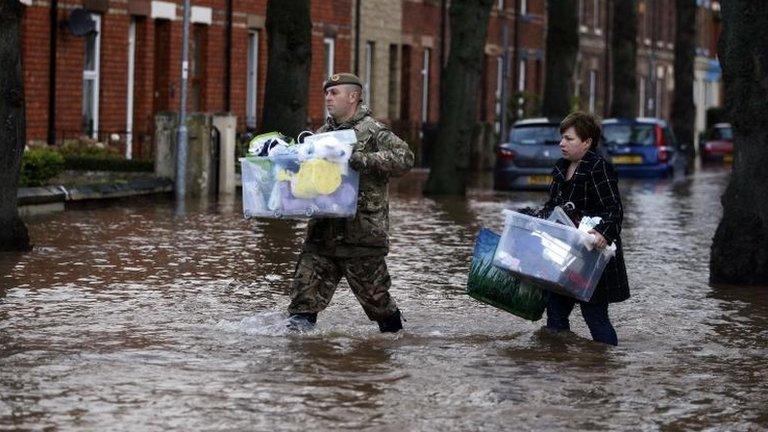Storm Desmond: Power restored to thousands of homes
- Published

Most of the homes left without power after severe flooding hit parts of the UK over the weekend have been reconnected, energy firms say.
Power has been restored to all but 1,047 homes in Cumbria and a "handful" in Lancashire.
However, people are being urged to use power "sparingly" because the network is not yet at full capacity.
More rain is due in the area this week, with 16 severe flood warnings, external, indicating danger to life, in place.
The Met Office also has a yellow "be aware" warning in place, external for parts of northern England and Scotland on Wednesday and Thursday.
Storm Desmond battered north-west England, as well as parts of Northern Ireland, north Wales and southern Scotland, over the weekend.
Record-breaking amounts of rain fell in Cumbria - the worst-hit county - prompting it to declare a major incident.
In other developments:
In a message on Twitter,, external the Queen sent her sympathy to those affected by the flooding and thanked the emergency services, local authorities, military and volunteers for their help
Nearly 100 flood warnings and alerts, external are in place in England and Wales
More than 20 are in place in Scotland, external, where 600 homes in the Borders town of Hawick were evacuated at the weekend
Many schools in Cumbria remain closed and Lancaster University has cancelled teaching for the rest of term after losing power across much of the campus
Cumbria Partnership NHS Foundation Trust said it would be running only essential services, external
Roads have closed in the worst-affected areas
Virgin Trains said it had reopened the West Coast mainline, but warned delays were still likely
The Cumbrian coast rail line, running between Carlisle and Workington, remains closed
On Monday, as many as 42,000 homes in Lancaster lost power for a second time following flood damage at a substation.
Sixty-three generators are now being used to power 18,000 homes in the city in an effort to relieve the load on the substation.
Electricity North West is urging people to use power sparingly and warning that managed power cuts may be needed later if demand exceeds the capacity.

Storm Desmond: Your experiences
Tour Beth's flooded student home
In pictures: Storm Desmond chaos
Insurance advice for flooding victims
Acts of kindness keep Cumbria afloat
Environment Agency map of flood-risk areas, external
Thousands of homes were flooded by Storm Desmond, forcing many families in Lancashire and Cumbria to evacuate.
June Richardson, from Carlisle, has spent three nights in a rescue centre.
"You feel really tearful - the things you like and work hard for are just floating about," she told the BBC.
Even Christmas presents, which she tried to put high up out of the water's reach, ended up in flood water, she added.
Her husband John said it had been "soul-destroying, especially when it happens again after [floods in] 2005".
The BBC's Ben Ando said the £45m flood defences that failed over the weekend were now acting as a barrier the other way, preventing the flood waters receding as quickly as they otherwise would.
Science Editor David Shukman assesses the scale of the damage
Residents in Brunton Avenue, Carlisle, show the BBC's Ed Thomas through their flooded homes
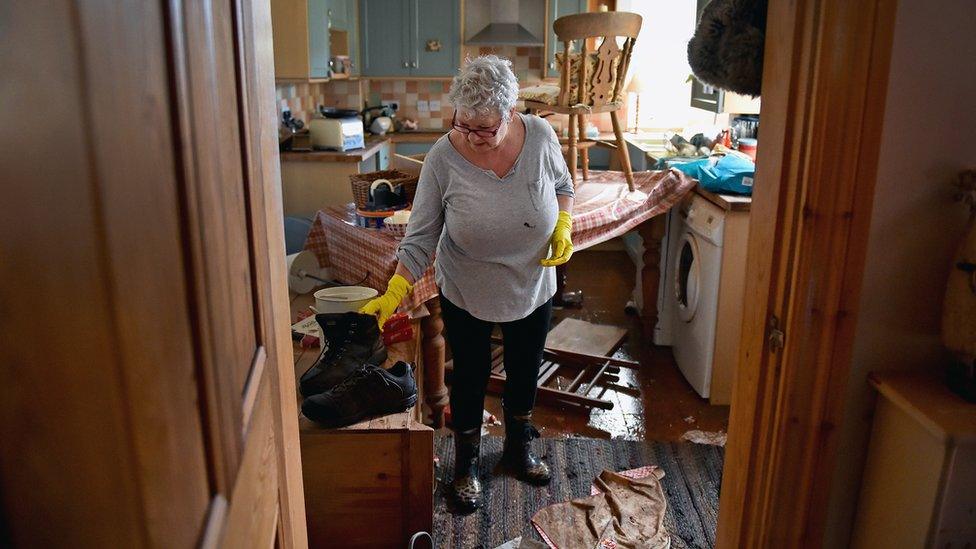
Now that most of the water has subsided, homeowners in Carlisle are beginning to assess the damage
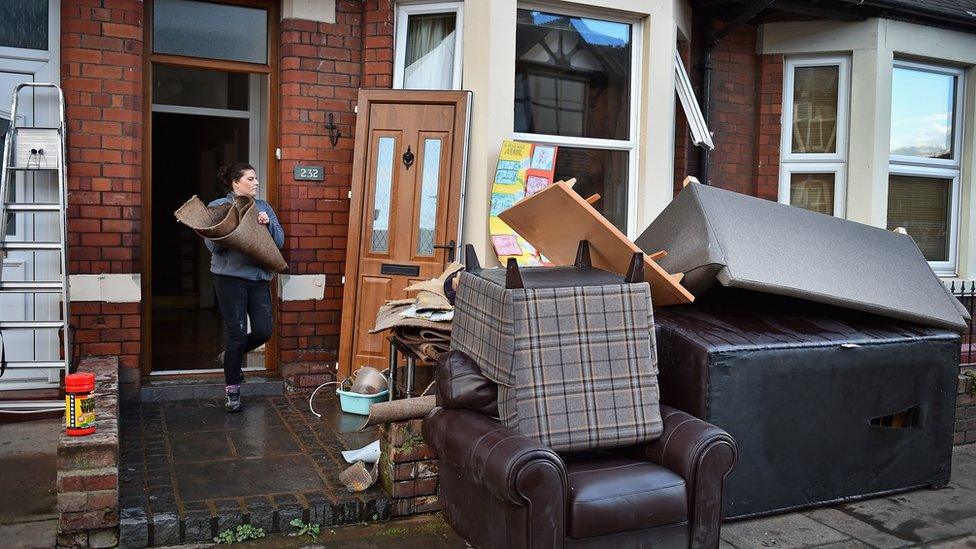
Many items are beyond salvaging and are simply being carried to skips or piled up, awaiting disposal
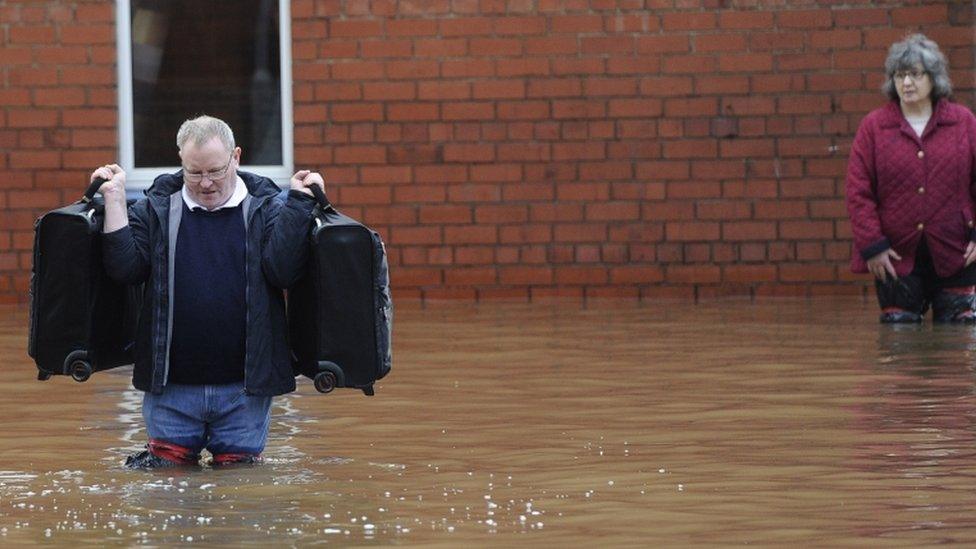
Residents carry what can be saved from their homes to temporary accommodation elsewhere
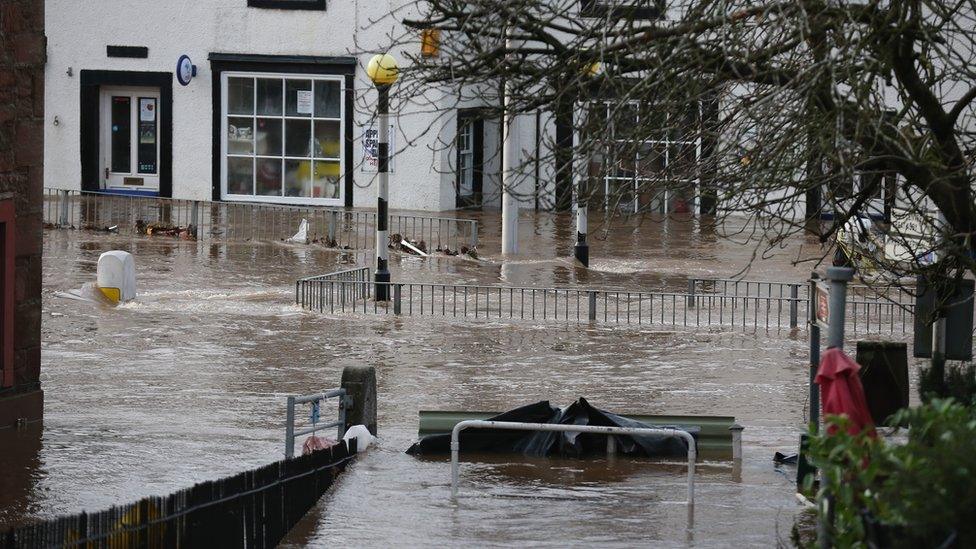
Many of the communities affected by Storm Desmond suffered similar devastation in 2005 and 2009
In Cumbria, police said a man's body had been recovered from a river. The death of the 78-year-old, who lived in the Staveley area, has been referred to the coroner.
And the body of a 70-year-old man from County Tyrone, Northern Ireland, was found on a road in the Republic of Ireland.
It is understood his car got stuck in flooding and he was swept away when he got out.
Meanwhile, there has been criticism of the government because Cumbria's multimillion-pound flood defences - built following floods in 2005 - failed to keep the deluge from people's homes.
Environment Secretary Liz Truss, who is visiting Carlisle, said existing flood defences did make a difference.
"The effect of the defences was to delay the impact and reduce the impact so that gave more time for people to be evacuated, it gave more time for the emergency services to operate and help to protect lives and homes," she told BBC Breakfast.
On a visit to Carlisle on Monday, Prime Minister David Cameron said the flooding was "absolutely horrific" and the government would fully reimburse councils for the costs of dealing with it.
Paul Cobbing, chief executive of the National Flood Forum charity, said building barriers was only one aspect of flood protection.
"We can do an awful lot with, for example, land management upstream, ditch and riverbank management, how we manage the gullies in our roads, how we manage the cambers in our roads... how we build infrastructure projects."
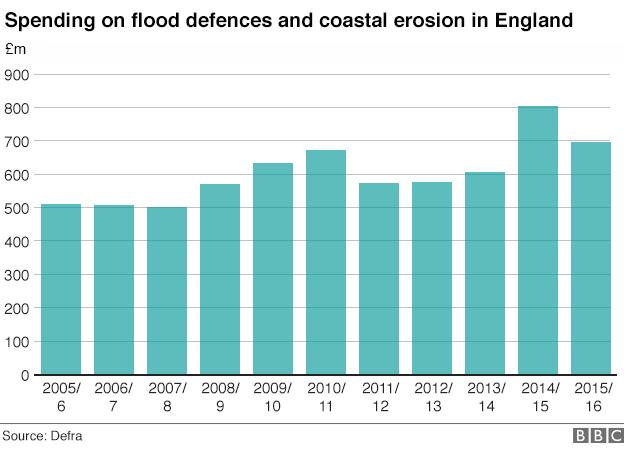
Conservative MP Neil Parish, chairman of the Environment, Food and Rural Affairs select committee, said the government needed to inject "real cash" - possibly doubling the current budget.
Government documents suggest there will be a decrease in flood defence spending in England, from £802m last year to £695m in this financial year.
Last year's figures were inflated by exceptional funding from the Treasury in the wake of winter floods two years ago, BBC political correspondent Iain Watson said, so ministers are maintaining that underlying expenditure hasn't been cut.
Labour leader Jeremy Corbyn accused the government of making "false promises" about dealing with flood defences.
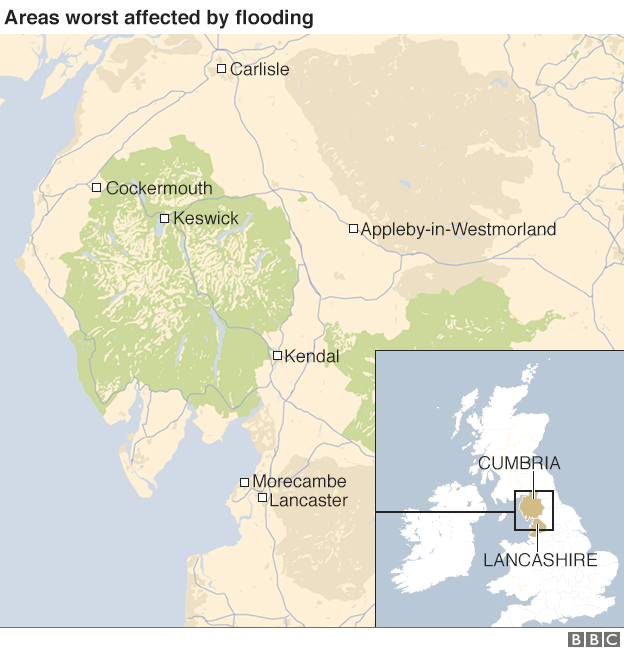
Live flood warnings from the Environment Agency and the Scottish Environment Protection Agency.
Tap here, external for up to date information.


Have you been affected by Storm Desmond? You can share your comments and experience by emailing haveyoursay@bbc.co.uk, external.
Please include a contact number if you are willing to speak to a BBC journalist. You can also contact us in the following ways:
WhatsApp: +44 7525 900971
Send pictures/video to yourpics@bbc.co.uk, external
Tweet: @BBC_HaveYourSay, external
Send an SMS or MMS to 61124
- Published7 December 2015
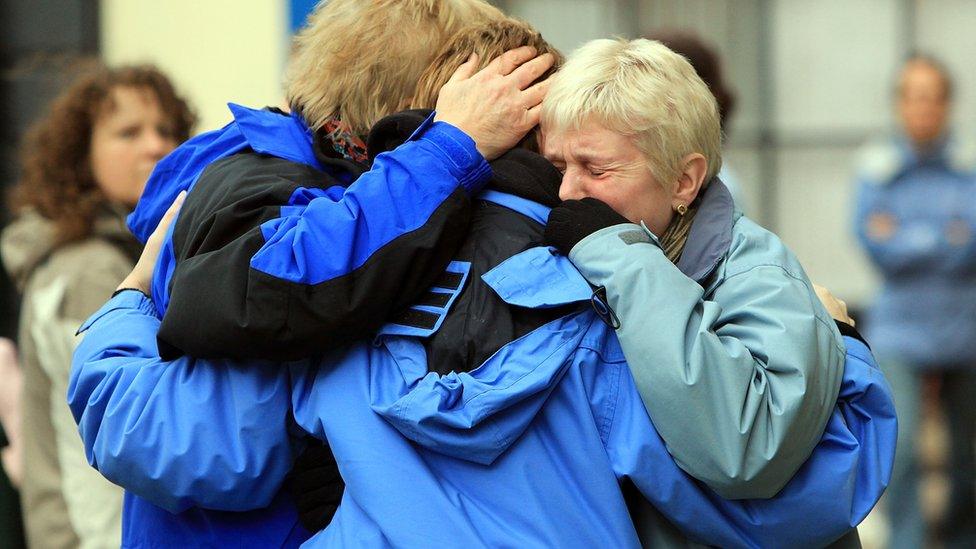
- Published7 December 2015
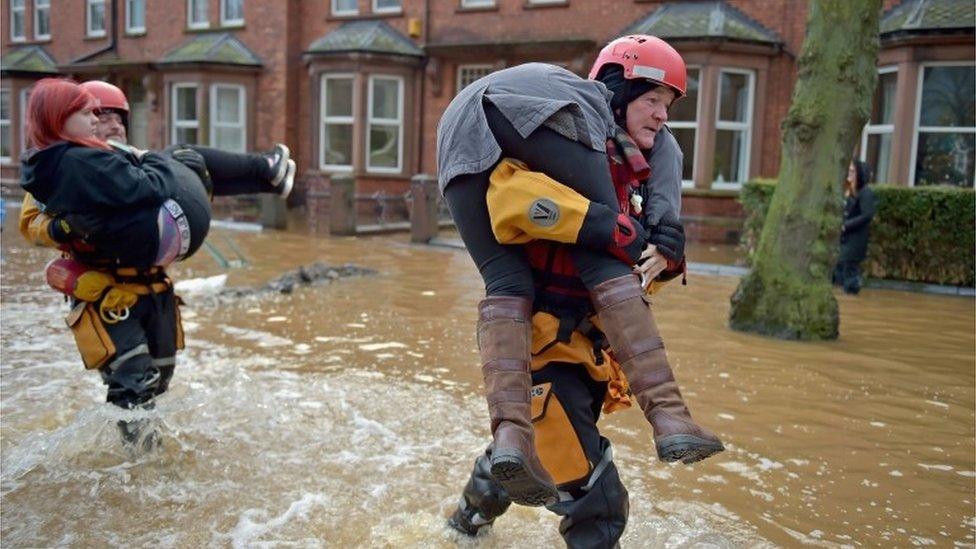
- Published7 December 2015
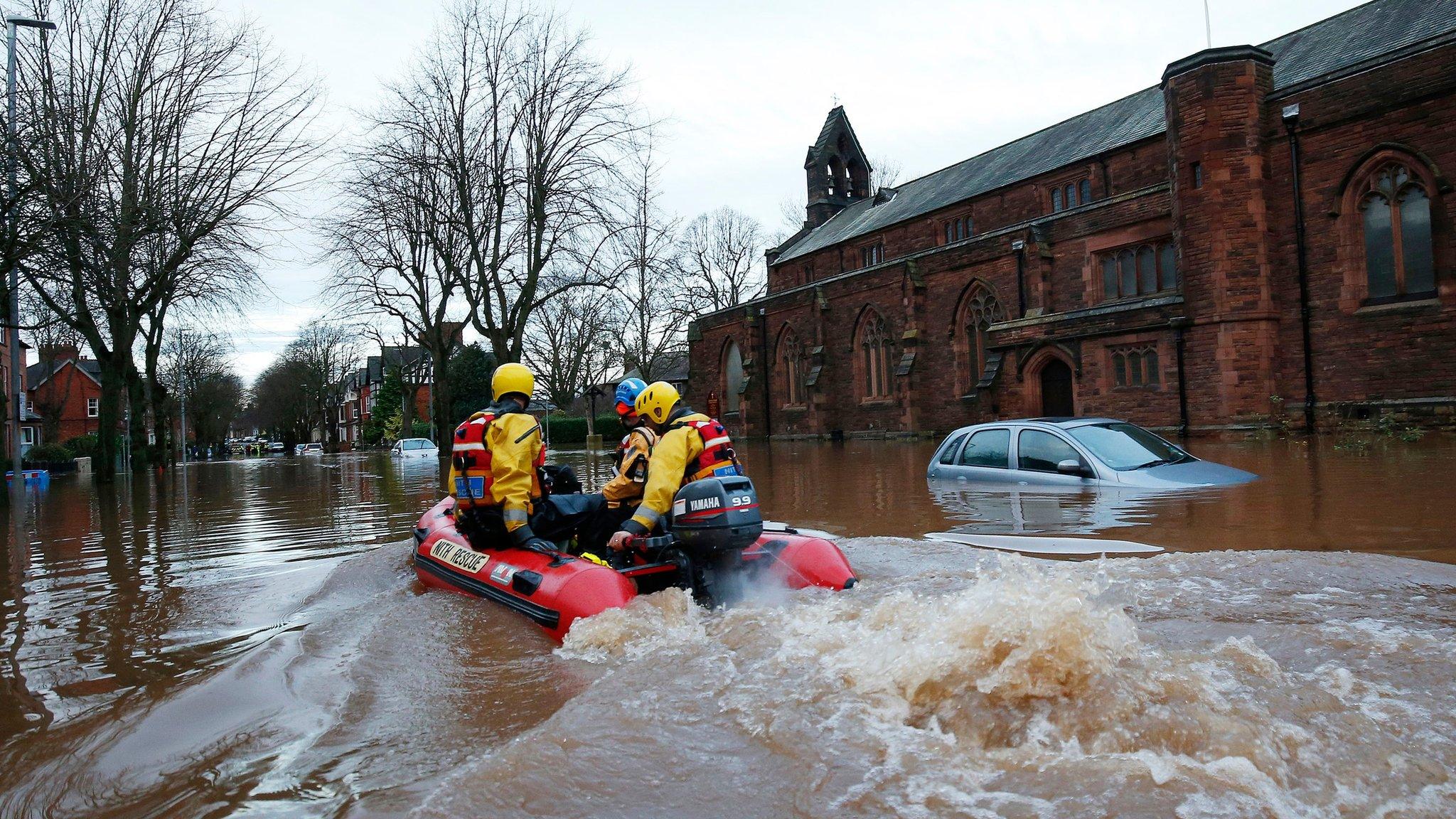
- Published22 February 2022
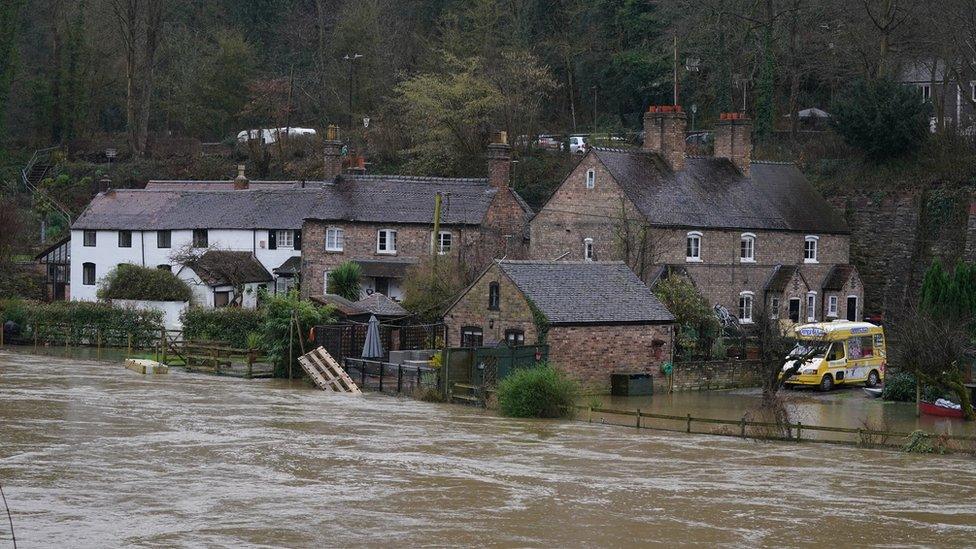
- Published23 December 2015
